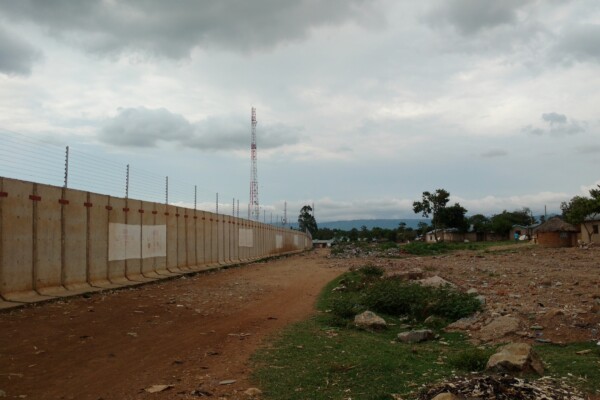
Voices from Tanzania – Social and economic impacts of land acquisition by Barrick North Mara Gold Mine in Tanzania: A case study of Komarera, Kewanja and Mjini Kati villages in Tarime District
June 19, 2024This publication is part of IPIS’ Voices from Tanzania series and its edition on “The impact of land acquisition practices in the extractive sectors of northern Tanzania”. In their Voices from Tanzania study Himiza Social Justice assesses the socio-economic impacts of land acquisition practices by the industrial Barrick North Mara gold mine on 3 villages in Tarime district, Mara region. Downl
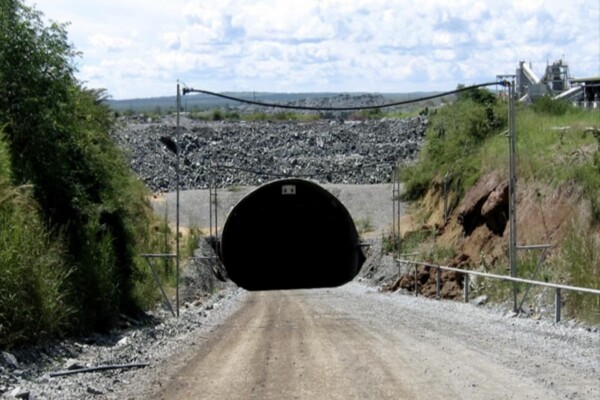
Voices from Tanzania – The social-economic impact of land acquisition practices related to Bulyanhulu Gold Mine on communities in Msalala district council, Shinyanga region
June 17, 2024This publication is part of IPIS’ Voices from Tanzania series and its edition on “The impact of land acquisition practices in the extractive sectors of northern Tanzania”. In their Voices from Tanzania study Rafiki SDO assesses the socio-economic impacts of land acquisition practices by the Bulyanhulu gold mine on 2 villages in Msalala district council, Shinyanga region. Download the report (EN) P
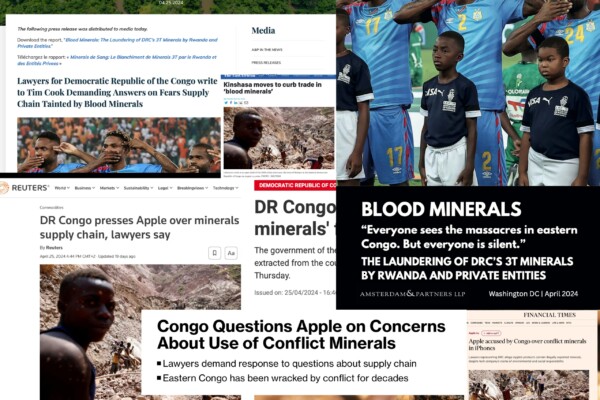
Why the DR Congo is putting Apple on the spot
May 15, 2024End of April, several international media relayed accusations against Apple sourcing ‘conflict minerals’ from eastern Democratic Republic of Congo (DRC). The reality behind these allegations is however quite complex. The reasons for the Congolese government to speak out now, seem to go beyond concerns related to human rights violations along mineral supply chains. The allegatio
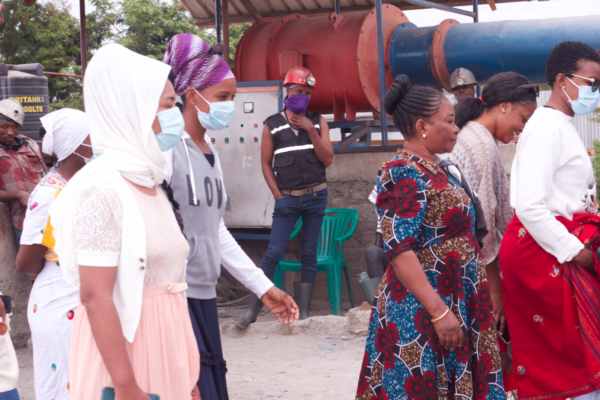
Unearthing equality: Women’s empowerment in Tanzania’s extractive sector
April 18, 2024DARUBINI – TANZANIA BRIEFING – APRIL 2024 While driving economic growth and contributing to welfare, the benefits of Tanzania’s extractive sector have not been equitably distributed among all segments of society, with women being notably disadvantaged. In this briefing, IPIS and its partners look at the realities of women’s participation in both small and large-scale mining. The briefing iden
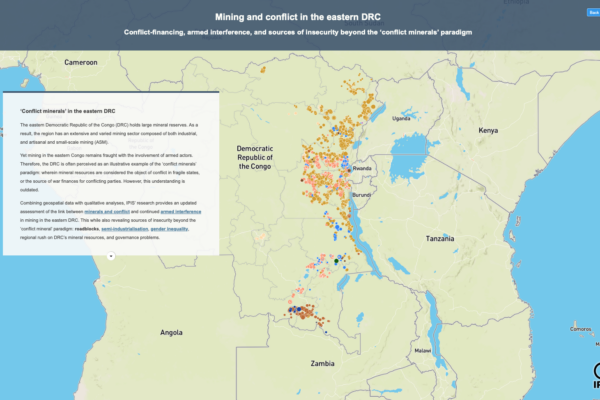
Mining and conflict in the eastern DRC: An interactive story map
February 15, 2024Conflict-financing, armed interference, and sources of insecurity beyond the ‘conflict minerals’ paradigm In this story map, IPIS presents its findings on the linkage between mining and conflict-financing in the eastern Democratic Republic of the Congo (DRC). Based on a survey conducted between 2021-2023 of 829 active mining sites (representing over 132,320 artisanal miners), IPIS’ research provid
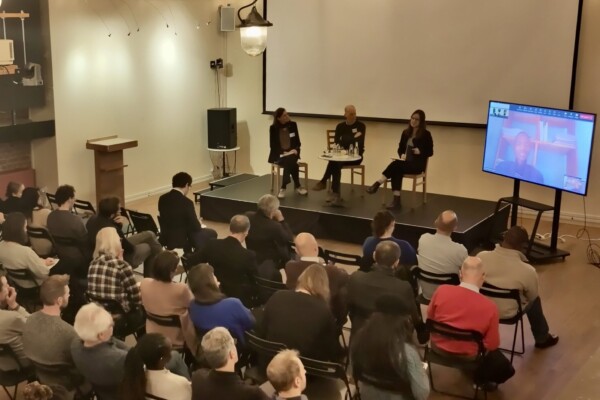
IPIS Event: Congolese cobalt, EU regulations, and direct investment
January 9, 2024On the 30th of November, IPIS hosted its annual panel discussion, this time on current challenges facing the cobalt sector in the Democratic Republic of the Congo (DRC) and the potential impact of European Union (EU) regulations to improve these. Moderated by Lotte Hoex, the panel consisted of Esperant Mwishamali, independent researcher on cobalt artisanal and small-scale mining (ASM) in the DRC,
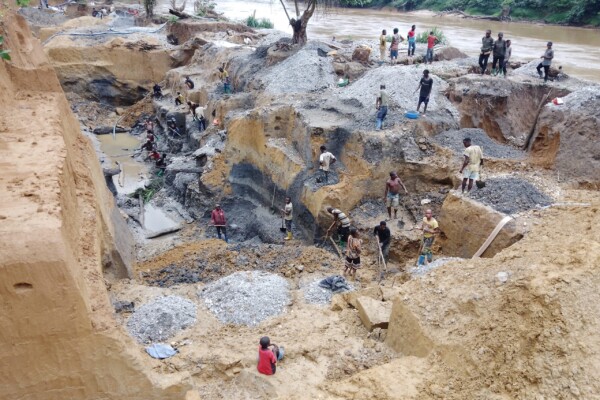
Analysis of the interactive map of artisanal mining areas in eastern Democratic Republic of Congo (2023 update)
December 22, 2023Since 2009, IPIS has mapped and collected data at more than 2,800 Artisanal and Small-scale Mining (ASM) sites in the eastern Democratic Republic of the Congo (DRC). In this report, IPIS provides its 2023 update of the state of ASM in the eastern DRC, based on data from over 829 ASM sites in the eastern DRC between 2021-2023. The study analyses linkages between mining, conflict, and insecurity in
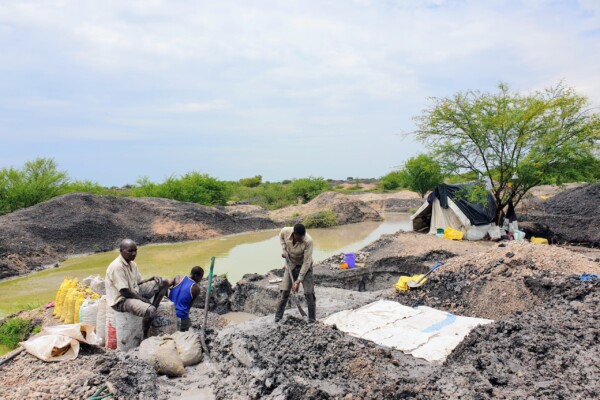
Access to remedy and extractive industries: The challenges of legal aid providers in Tanzania
December 20, 2023DARUBINI – Tanzania Briefing – December 2023 Tanzania’s rich mineral reserves and thriving extractive industries provide a promise of economic prosperity and development. However, when these industries cause harm to both surrounding communities and environments, access to remedy often remains difficult. In this briefing, IPIS and its partners address challenges facing Legal Aid Providers (LA

Increasing awareness of policy reforms on gender equality issues in artisanal and small-scale mining in eastern DRC: Case study of the Numbi, Nzibira and Nyabibwe sites
December 13, 2023The mineral resources of the eastern Democratic Republic of the Congo’s (DRC) provide an important source of employment for both men and women involved in artisanal and small-scaling mining (ASM). Yet opportunities are not equal for men and women. Based on a series of interviews with various ASM stakeholders at the mines of Numbi, Nzibira and Nybibwe in the province of South Kivu, this
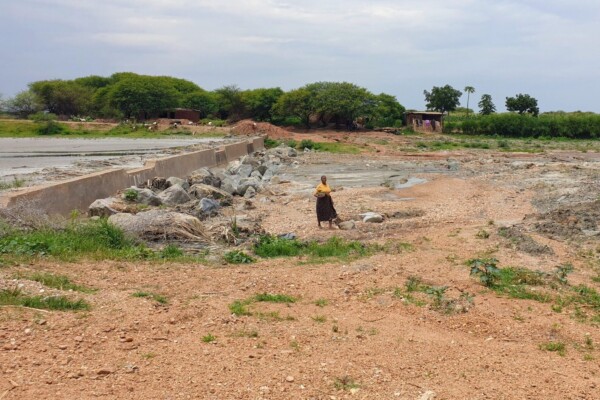
Petra Diamonds’ attempts to come clean with its tarnished past in Tanzania
November 9, 2023Challenges in securing access to remedy and restoring community relations after serious human rights abuse at the Williamson diamond mine This report assesses the efforts by Petra Diamonds to restore community relations and remediate the legacy of serious human rights abuse at its Williamson diamond mine in Tanzania. Download the report The Williamson Diamonds mine, adjacent villages a
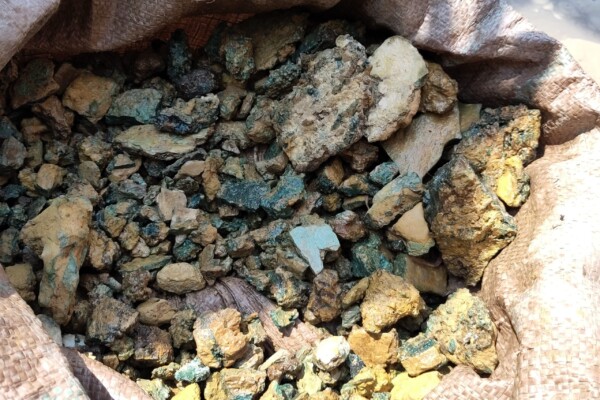
The EU Critical Raw Materials Act: Handshakes, extracting, processing and recycling. Why not reducing and prioritizing?
November 7, 2023The European continent struggles with the dilemma to secure its raw material supply chain for the sake of its green transition and energy sovereignty, at the cost of more pollution, ecosystem destruction and handshakes with undemocratic resource-rich countries. The Critical Raw Materials Act (CRM Act) proposes a strategy to secure a sustainable supply of critical raw materials, and is currently ne
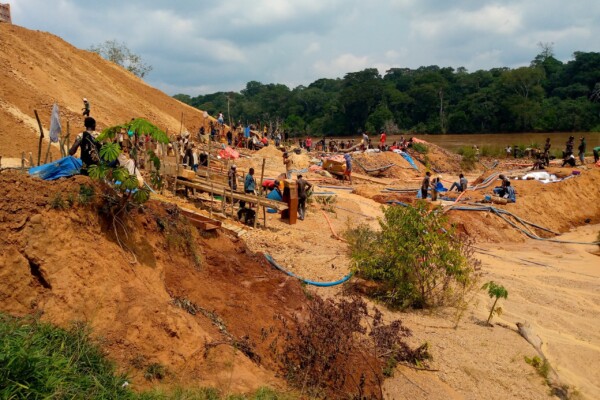
Mapping of artisanal mining sites in western Mambasa, Ituri Province, Democratic Republic of the Congo
October 27, 2023The western part of Mambasa territory, in Ituri province, has been overlooked by national authorities and international partners. This despite major expansions of artisanal and small-scale gold mining (ASM) operations, including in the Okapi Wildlife Reserve (OWR). These mining operations have caused tensions between native inhabitants, miners, armed actors, officials and conservationists. Se

Joint NGO statement: EU Conflict Minerals Regulation failing to reach its goals
October 19, 202320 NGOs call on the EU to step up its enforcement and adopt new measures Download the statement (ENG) Téléchargez la déclaration (FR) Brussels, 19 October 2023 More than six years after it was signed into law, the EU Regulation on the responsible supply of tin, tungsten, tantalum and gold (3TG) originating from conflict-affected and high-risk areas (CAHRAs) is failing to reach its key object
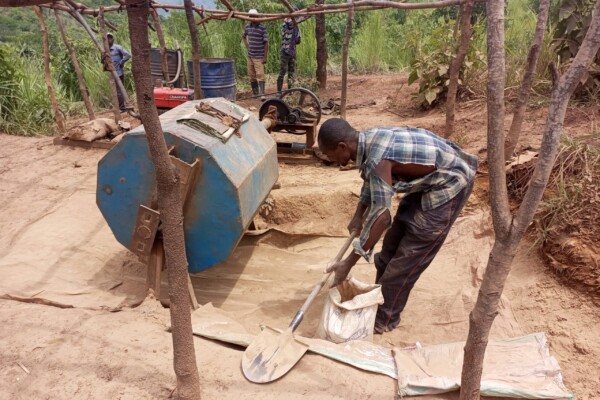
Securing insecurity: Semi-industrial gold mining and violence in Mwenga, South Kivu, Democratic Republic of Congo
October 5, 2023Since 2011, gradual introduction of novel mining equipment such as crushing mills has led to the increasing mechanization of artisanal gold mining operations in Mwenga territory (South Kivu), including the arrival of semi-industrial mining companies. This report is part of a USAID-funded project examining the linkage between armed conflict, insecurity and natural resource exploitation in the easte
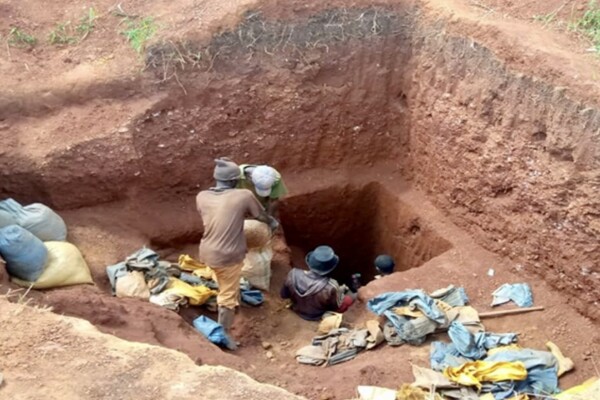
Voix du Congo: The role of artisanal mining in the demobilisation and reintegration of former FPRI fighters in the chefferie de Walendu Bindi, Ituri
September 22, 2023See our series: VOIX DU CONGO Located in the north-east of the Democratic Republic of Congo, the province of Ituri has experienced almost two decades of activism by the armed group Force de Résistance Patriotique de l’Ituri (FRPI). The failure of a demobilisation, disarmament and reintegration (DDR) programme launched in 2020 has led FRPI fighters to informally return to public life, finding
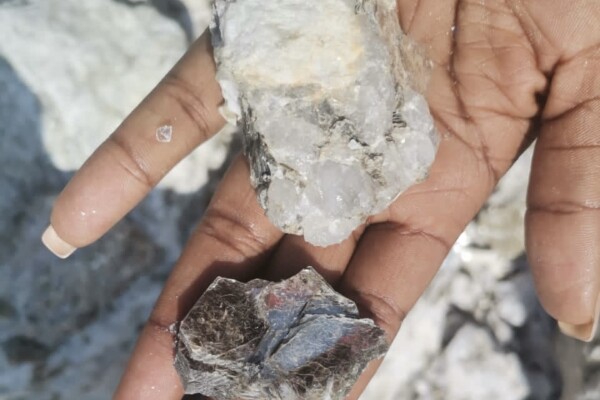
Chinese dominance in Zimbabwe’s lithium mines: Potential risks, vulnerabilities and opportunities in the critical minerals sector
September 20, 2023In the global race for energy transition minerals that are meant to help address the climate change crisis, Zimbabwe is one of the few African countries with important lithium reserves. If mining projects are managed transparently and with respect for property rights, human rights and openness to competitive investments, it can potentially lead to growth and development that has so far elude

Tanzania’s mining policy on local content: Progress and associated challenges
September 13, 2023DARUBINI – Tanzania Briefing – September 2023 Tanzania has experienced a boom in its mining sector in the past few years. Yet there are concerns about the limited benefit this has provided to Tanzanian communities , due to a lack of local participation in the sector’s value chain. This briefing evaluates the implementation of legislation regulating local participation thus far and identifies
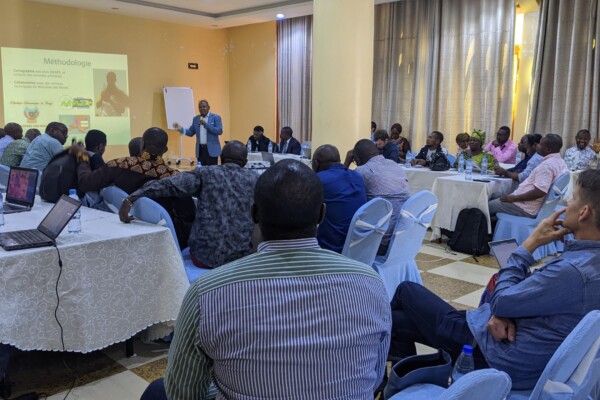
Sharing the results of two years of research into eastern DR Congo’s artisanal mining sector
July 12, 2023Since 2021 and in partnership with USAID and the Congolese Ministry of Mines (through its technical service SAEMAPE), IPIS has been undertaking a large-scale project to map and analyse artisanal mining supply chains and conflict financing dynamics in eastern DRC. A restitution meeting was held in Goma (North Kivu) on June 21st, 2023 to present and discuss the results produced over the past two yea
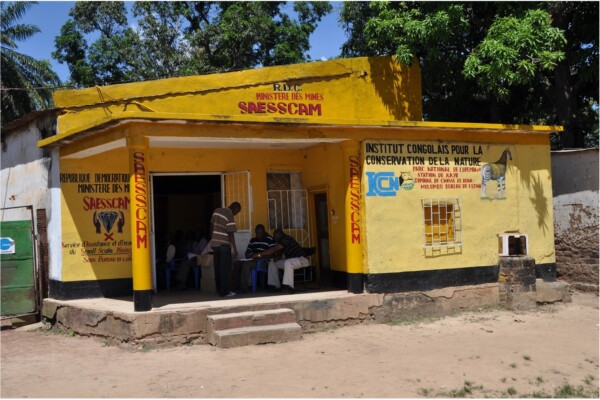
Taxes and levies in the artisanal mining sites of South Kivu and Ituri: How much does an artisanal miner pay?
April 14, 2023This report is the result of a large-scale field study on taxation in the artisanal mining sector in the eastern Congolese provinces of Ituri and South Kivu. The main finding is that current regulations and practices in the field not only cause mineral smuggling, which leaves some of the sector’s fiscal potential untapped at the provincial and national levels, but also constitute a source of insec
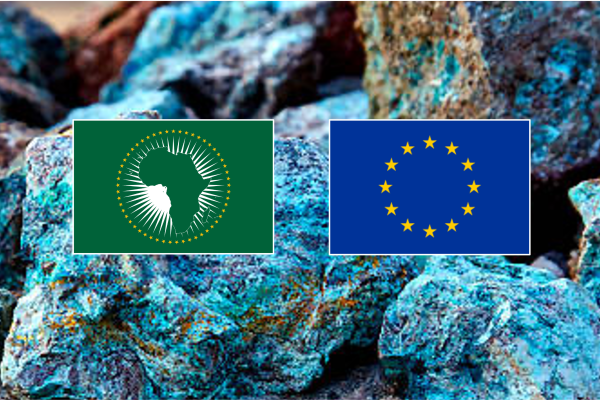
Critical minerals and the need for equal partnerships with African producers
April 12, 2023Before Western policymakers recognized the immense strategic importance of minerals for green energy production in the 21st century, it was primarily seen as the main source of conflicts in Africa, especially when they were extracted in the African Great Lakes Region.

